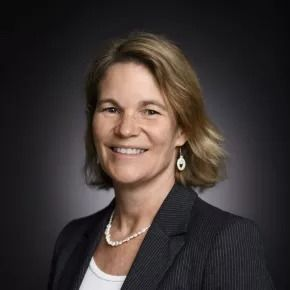TOPICS
- Inclusive Digital Economies
FIW Year
- 2024
Download Transcript:
Summary + Key Findings
A discussion on the progress and challenges of financial inclusion over the past decade, focusing on reaching the next billion underserved individuals.
- 🌐 Progress in Inclusion: The financial sector has integrated 1 billion previously unbanked individuals into formal services, yet many remain excluded. This highlights the need for targeted efforts to reach the remaining populations.
- 📈 Importance of Data: The rise of data analytics and AI enables a better understanding of underserved communities, allowing for customized financial products that meet their specific needs. Harnessing this data is vital for future inclusion efforts.
- 🔒 Building Trust: Trust is essential for encouraging usage of financial services. Ensuring robust consumer protection against fraud is crucial, especially as new users may be more vulnerable to scams and misinformation.
- 🤝 Public-Private Partnerships: Collaboration between governments, fintech companies, and NGOs is necessary to create effective policies and frameworks that support financial inclusion while ensuring consumer protection and market sustainability.
- 💪 Focus on Usage: Access alone is insufficient; the industry must ensure that users actively engage with financial services to realize their benefits, shifting the focus from mere access to consistent usage.
- 🌿 Adapting to Challenges: Financial services must evolve to address current global challenges such as climate change and economic instability, ensuring that products are relevant and beneficial for users in diverse circumstances.
- 🚀 Future Aspirations: The next decade will demand innovative solutions and concerted efforts to reach and serve the next billion, leveraging lessons learned from past successes and failures to drive impactful change.
This session summary was AI-generated using NoteGPT.
Watch Session:
Since Financial Inclusion Week started ten years ago, the world has changed significantly. Revolutionary digital innovations spanning smartphones, AI, open finance, digital public infrastructure, and beyond have enabled more than one billion people to gain access to financial solutions to help them build better lives. Meanwhile, a global pandemic disrupted progress toward reducing global poverty, and accelerating digitization now threatens to entrench economic divides. In the next decade, how can we ensure innovation is inclusive, and create financial solutions that are truly impactful for the world’s remaining two billion underserved people? In this session, global leaders and champions of ‘Financial Inclusion 2.0’ break down what needs to happen to maximize the impact of inclusive finance to create a fair and inclusive economy for those who remain left out.
FIW REsources
Explore Financial Inclusion Week sessions from previous years.
Hosted annually by the Center for Financial Inclusion, FIW brings together global leaders to exchange ideas, share research, and offer perspectives to inform the future of inclusive finance.




